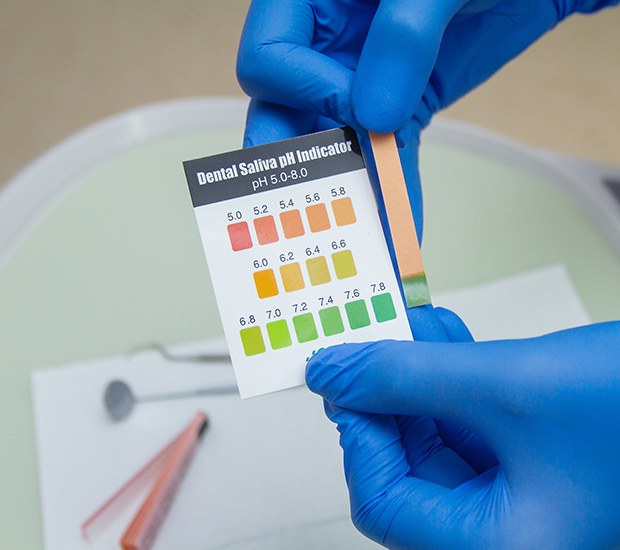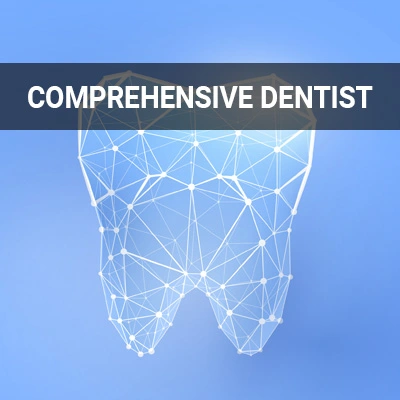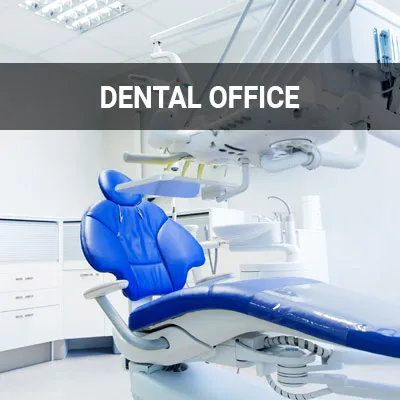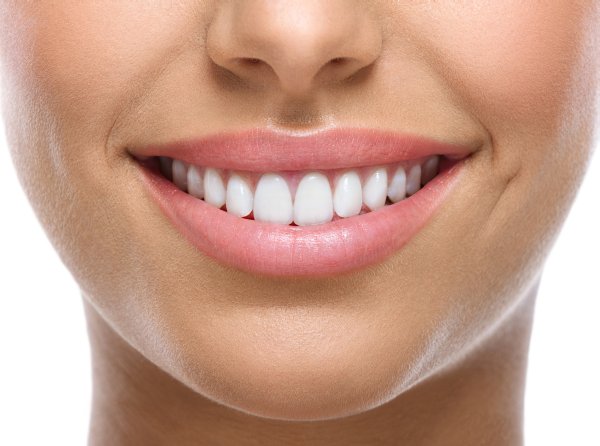Saliva pH Testing Weston, FL
Saliva pH testing helps us determine if a patient's pH levels are harmful to their teeth. This test can also help measure various health levels. While overlooked, this can be an important health check. Various factors can influence one's salivary pH levels. pH levels must remain basic for optimal health.
Saliva pH testing is available at Artful Dentistry & Wellness in Weston and the surrounding area. Some saliva pH levels can lead to irreversible damage. Call us today at (954) 526-2266 to schedule an appointment or learn more about our services.
Meaning Behind pH Levels
Potential hydrogen, or pH, levels refer to the chemical level of a substance and range from most acidic (0) to most alkaline (14) with a midpoint of 7 (pure drinking water). Normal saliva should remain between 6.2 and 7.6 pH, with a slightly higher alkaline level. The human body consists of about 60% water, and pH levels need to be close to that to sustain it.
Acidic pH describes substances that fall below a pH of 7, such as coffee, vinegar, and soda. Acidic substances cause acids in the mouth to demineralize, or break down, tooth enamel and expose the dentin. Dentin is the inner layer beneath the enamel; when exposed, teeth become sensitive to hot, cold, and sugary drinks.
Alkaline pH describes substances that rise above a pH of 7, including alcoholic beverages, seawater, and antacids. People with higher alkaline pH levels tend to have frequent dental problems.
“The human body consists of about 60% water, and pH levels need to be close to that to sustain it.”
Acidic pH Levels
Acidic beverages can cause the pH level of one's saliva to decrease below 5.5. Once this occurs, the acids in the mouth may begin to break down, or demineralize, the tooth enamel. Tooth enamel that becomes too thin will expose the dentin, leading to temperature sensitivity and discomfort when drinking sugary beverages.
According to one 2013 study published in the Journal of Indian Society of Periodontology, participants with chronic generalized periodontitis had a relatively more acidic salivary pH than the clinically healthy group. Saliva pH below 7.0 is typically an indication of acidemia, which results in an abnormal amount of acidity in the blood. If the patient has a chronic condition, they are at heightened risk for dental decay, halitosis, and periodontitis and, since oral health is directly linked with overall health, a slew of systemic diseases.
“Saliva pH below 7.0 is typically an indication of acidemia, or abnormal acidity of the blood.”
Alkaline pH Levels
Persons with alkaline saliva pH levels (that is, a pH higher than 7.0) tend to experience the same symptoms as persons with acidic saliva pH levels. These include persistent bad breath, sensitivity to hot or cold foods and beverages, and tooth cavities.
Alkalosis may be attributed to an inadequate supply of carbon dioxide in the bloodstream, a significant loss of acid, a critical decline of chlorine, or an inadequate supply of potassium in the body. However, the condition itself is much rarer than acidemia. Alkaline pH is conducive to plaque growth. As such, it should come as no surprise that the aforementioned 2013 study found that participants with chronic generalized gingivitis had comparatively more alkaline saliva pH levels when compared to the clinically healthy group.
“Alkaline pH is conducive to plaque growth.”
Check out what others are saying about our dental services on Yelp: Saliva pH Testing in Weston, FL
Performing the Test
Salivary pH levels can be tested in our office using pH strips. Patients should not eat or drink for at least two hours prior to the test to attain the most accurate results. As pH levels change throughout the day with food and beverages, the test results may be inconclusive.
To perform the test, the patient needs to collect and fill their mouth with saliva, then spit it out. They will repeat the process of collecting and filling the mouth, but this time, placing saliva on a test strip. The strip will change colors according to the pH level, red being the lowest (acidic) and purple being the highest (alkaline). We will be able to tell you the exact pH number.
“The strip will change colors according to the pH level, red being the lowest (acidic) and purple being the highest (alkaline).”
Questions Answered on This Page
Q. How does pH level affect a person's oral health?
Q. What causes an acidic saliva pH?
Q. What are the symptoms of alkalinity?
People Also Ask
Q. What are some conditions that a complete health dentist can diagnose?
Q. How does oral health affect overall health?
Q. Why should someone see a complete health dentist for TMJ?
Q. Why is preventative care important?
Q. What family members may need extra help with their oral hygiene?
Improving pH Levels
The most effective way to improve or balance the pH levels in saliva, we recommend consuming foods and beverages with a midrange pH. However, much of the essential nutrients, vitamins, and minerals the body needs are lost in neutral pH foods. Therefore, adjusting both acidic and alkaline levels and limiting certain behaviors can positively influence salivary pH levels.
Behaviors that can be adjusted according to Healthline include:
- Avoiding sugary soft drinks (drink them quickly and follow up with water)
- Avoiding black coffee (add dairy, not a sugary flavored creamer, to counteract acidity)
- Avoiding brushing teeth right after drinking highly-acidic beverages as they soften tooth enamel (brushing can further damage the enamel)
- Chewing gum (sugarless gum – preferably one with xylitol – encourages saliva production; xylitol prevents bacteria from sticking to tooth enamel)
- Staying hydrated (drink plenty of pH 7 water)
“Dental bonding can enhance the smile and improve tooth function.”
Frequently Asked Questions About Saliva pH Testing
Q. Why is it bad to brush my teeth while my mouth is acidic?
A. Brushing your teeth while your mouth is at peak acidity can cause you to brush away the dissolved minerals, causing the weakened surface to become more susceptible to damage. As such, it is best to wait at least an hour after you have consumed acidic foods or beverages before brushing teeth. Rinsing with plain water immediately after eating can also raise your pH levels while removing loose food particles.
Q. What is saliva made up of?
A. Saliva comprises over 99% water. However, saliva collected from the mouth also contains desquamated oral epithelial cells, leucocytes, fluid from the gingival crevice, food remnants, and microorganisms and their products.
Q. Does tobacco use affect salivary pH?
A. Yes. A study published in the Journal of Oral and Maxillofacial Pathology found that tobacco smokers and tobacco chewers had significantly more acidic salivary pH levels than those who did not use tobacco at all.
Q. What happens if your salivary pH levels drop too low?
A. Once your salivary pH levels drop below 5.5, the tooth enamel will begin to break down. This damage is permanent, as tooth enamel cannot grow back. Teeth may become sensitive, and you may notice a yellowish discoloration. This also makes you more susceptible to cavities.
Q. How can I keep a balanced pH in my mouth?
A. Limit your intake of sugary soft drinks and black coffee. If you must indulge, drink them quickly and rinse afterward with a drink of water. Add dairy to your coffee to counteract the acidity. Chew gum, preferably one with xylitol, to encourage saliva production. Finally, stay hydrated by drinking plenty of pH-balanced water.
Dental Terminology
Learn More Today
If you are interested in better understanding complete health dentistry or information regarding saliva ph testing, call us at 954-526-2266 to set up an appointment.
Helpful Related Links
- American Dental Association (ADA). Glossary of Dental Clinical Terms. 2025
About our business, license, and website security
- Artful Dentistry & Wellness was established in 2000.
- We accept the following payment methods: American Express, Cash, Check, Discover, MasterCard, and Visa
- We serve patients from the following counties: Broward County
- We serve patients from the following cities: Weston, Pembroke Pines, Southwest Ranches, Cooper City, Davie, Sunrise, and Plantation
- FL (License #DN 20879). View License Information and Specifics
- National Provider Identifier Database (1083016257). View NPI Registry Information
- Healthgrades. View Background Information and Reviews
- Norton Safe Web. View Details
- Trend Micro Site Safety Center. View Details
Back to top of Saliva pH Testing









